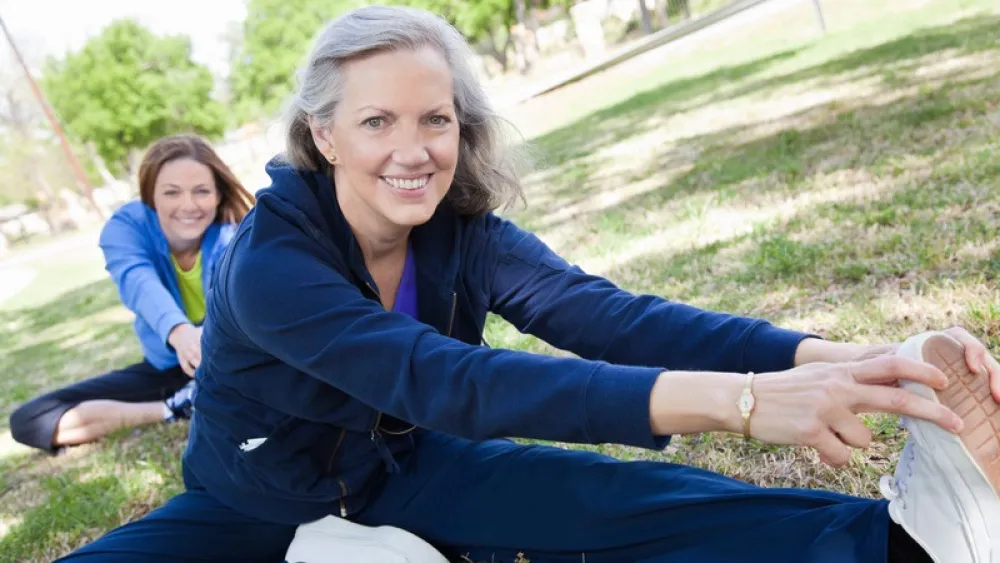Healthy Lifestyle
Self-Care: What It Looks Like and Why It's Important


You wake up each day. Brush your teeth, wash your face. Grab some toast and fill your coffee mug as you run out the door. Later on, if you remember, you may even take a lunch break. You take care of yourself every day, right?
Be honest. You could do better.
In fact, we all probably could.
Mind Over Matter
It all starts with being mindful – being aware of your needs and desires in order to be your best self. It’s not necessarily about sitting on the floor, your back stretched tall, your eyes closed as you meditate or sing Kumbaya. Sometimes, it’s simply understanding, and in some cases, learning what satisfies you physically, mentally, emotionally and spiritually.
Easier said than done, right? I get it. It’s difficult for me, too. Finding balance between a career and being a mother and wife is hard even for doctors who are supposed to have healthy living all figured out. It takes effort. I have to actively make choices to take care of myself so I can provide for my patients and family. It’s imperative that I lead by example. It’s imperative that you do the same.
Why Is it So Difficult?
We’re busy. And we live in a society in which success is often measured by paychecks, sales, numbers, hours worked, etc. Those “successes” hardly ever align with a plan for self-care and overall health. Just as your job requires active planning and scheduling, so does self-care.
Unfortunately, that kind of preparation is usually the first to get pushed aside in the hustle and bustle of everyday life, especially given the expectations we have for ourselves and others.
Why it Must Be a Priority
In addition to our nine-to-fives, many of us have other jobs like taking care of elderly parents or small children. Ever notice how guilty you sometimes feel as a parent or spouse when you’re stressed and “running on fumes”? Ever wonder why you’re told to fasten your oxygen mask, first, on a plane, before helping someone else with theirs?
We can’t take care of others, if we don’t take care of ourselves.
Lack of self-care also makes us more prone to stress. Stress is a very real threat to our physical and emotional well-being. If we don’t allow ourselves the time and energy to release some or most of it, our bodies will find a way.
Stress can manifest itself in many ways, including:
- Anxiety
- Depression
- Insomnia
- Weight gain
- Chest pain and heartburn
- Headaches
When we take care of ourselves – I mean, truly take care of ourselves – we can minimize stress and its impact on our lives.
What Does Self-Care Look Like?
What is it that makes you feel like your glass is full? What is it that calms you down and fires you up in the best of ways?
Set goals, each day, to help you achieve or maintain that, knowing some days will be better than others. Remind yourself to not get discouraged but to continue taking baby steps.
Some common examples of self-care include:
- Being more active (not just going to the gym, but taking more stairs or parking farther away)
- Planning out healthy, nutritious meals that fuel you and don’t just fill you
- Reading more (set a goal of a new book every month)
- Watching a movie
- Focused breathing and stretching
- Planning scheduled playtime or quality time with your children or family
- Connecting every so often with a good friend (over a cup of coffee or a walk in the park)
- Getting a massage or visiting the spa
- Joining a Bible study group
- Organizing a vacation (or “staycation” if vacations cause added financial and mental stress)
Determine what “recharges your battery” so to speak, and make it a priority to do those things regularly. Think of it as a marathon, not a sprint. It may feel foreign at first, but small, steady changes and choices become habits, over time.
If you need more ideas on what self-care might look like for you, speak with your Methodist Physicians Clinic primary care provider.


